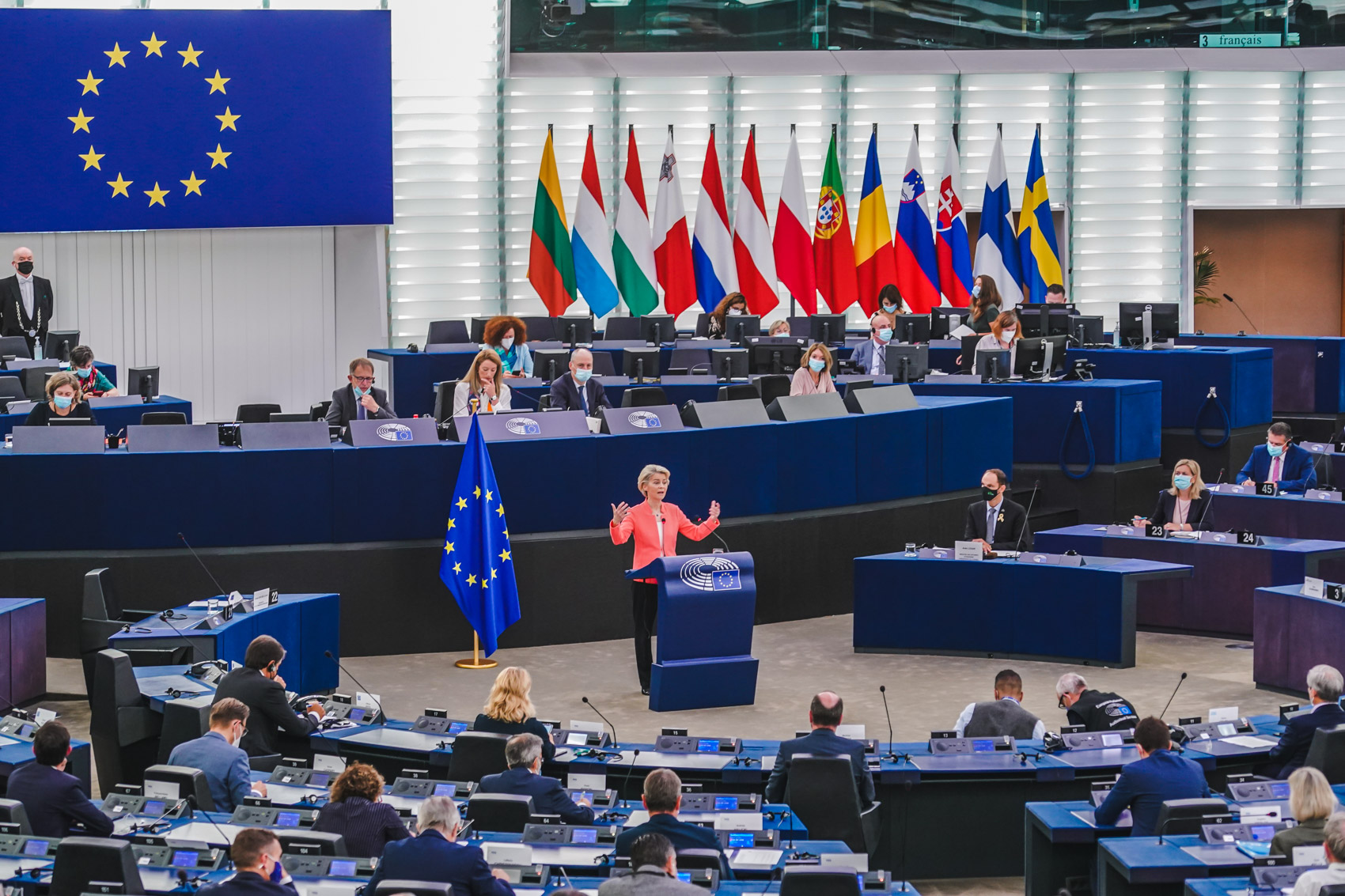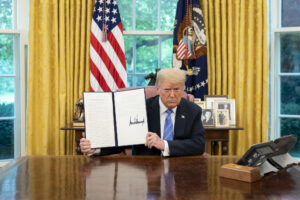It is no longer the same Parliament, nor is it the same Union. Everything has changed, mainly because France and Germany have run out of steam, both economically and politically. Of course, this is not the first time that one or the other of Europe’s two leading powers has been weakened, but never before had they been weakened so profoundly and never before at the same time. This has created a political vacuum in Brussels that the President of the Commission is trying to fill by acting as President of the Union.
Multiplying the Union’s foreign policy initiatives and shaping a Commission to her liking in a way that none of her predecessors had done before, Ursula von der Leyen seems determined to speed up the establishment of a political Union. Perhaps she is paving the way for a United States of Europe, a path already marked out by the joint military and financial support for Ukraine, the creation of the post of defence commissioner, the first joint loan of the 27 and the recommendations of the Draghi report on the launch of a common industrial policy. Or perhaps on the contrary, this acceleration will provoke such a rejection from European public opinion and national leaders that the unity of the 27 will be set back for a long time.
It is hard to say, because much will depend on the outcome of the American elections, Vladimir Putin’s ability to save face in Ukraine, the development of tensions in the Middle East and whether Xi Jinping can overcome China’s economic and social difficulties. Everything is uncertain, especially as the rise of the far right has changed things even more in the Parliament than in the Commission.
During the previous mandate, the centrists of the Renew Group were the third to speak, as they were the third largest group in terms of numbers after the right and the left. The centrists laid out the future compromise between left and right, the adults had spoken, the die was cast, but now…
Just like before, the floor is first given to the right and then to the left, to the People’s Party and the Social Democrats, but now Renew only comes fifth, after the Patriots for Europe and the European Conservatives and Reformists. The backbone of the Patriots (whose crazily American English acronym is ‘P4E’) is made up of friends of Ms Le Pen and Mr Orban. The Conservatives and Reformists, better known in Brussels “franglais” as the ECR, is led by Ms Meloni’s Fratelli d’Italia and Law and Justice, the Polish party now pushed into opposition.
Since the ECR is often close to the EPP, and since the Patriots do their utmost to get closer to both, a common position of these three right-wing currents is taking shape more and more often even before the centre has had a chance to speak. Even before Renew could make a statement, the Social Democrats are already marginalised and the chips are down, even if the parliamentary majority that has reappointed Mrs von der Leyen as head of the Commission brings together the EPP, the Social Democrats, Renew and the Greens – the “arc républicain”, as we would say in France.
Meeting after meeting, it is becoming increasingly evident that the People’s Party wants to make it clear to the centre, the left and the Greens that it has other allies and that it can therefore choose where to look for support on a case-by-case basis. This is not a reversal of the majority, since the EPP could not formally ally itself with the Patriots or even get too close to the ECR without rupture. In addition, the links of the Lepenists and Viktor Orban with the Kremlin horrify both the moderate right and the ECR.
The right, the left and the centre remain more closely aligned than the right-wing groups, but apart from the fact that the Lepenists are constantly smoothing their rough edges, the balance is no longer the same as it was yesterday. This is already the case in Parliament, and it may soon be the case in the Commission, where Ursula von der Leyen has made the Commissioner appointed by Georgia Meloni one of her five executive vice-presidents. Like the EPP where she is member, the Commission President now has many irons in the fire.
(Photo: CC-BY-4.0: © European Union 2021 – Source: EP)




